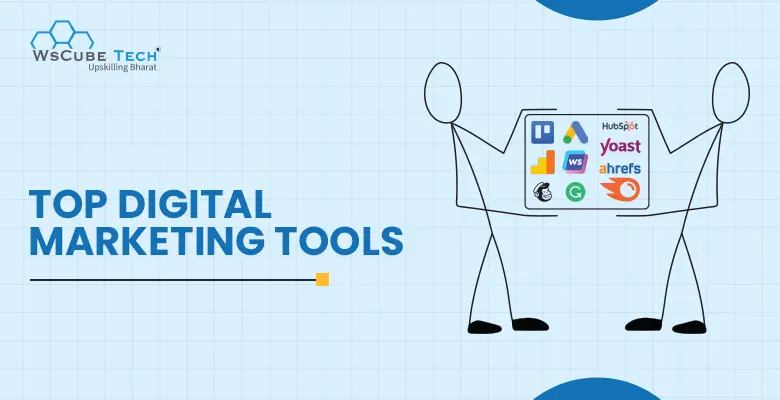Marketers and businesses heavily rely on several advanced tools and software to run successful campaigns and survive in the industry.
Companies that don’t leverage the power of modern and cutting-edge tools often fall behind and lose out on the best opportunities. On the other hand, brands that have strong tech support witness rapid growth by spending their valuable time on productive tasks rather than tedious ones.
Fortunately, there is a myriad of tools in digital marketing that can help advertisers and businesses develop powerful strategies, track results, optimize campaigns, and take necessary actions.

Best Digital Marketing Tools List
Here is a detailed list of digital marketing software that are highly recommended by professionals. From managing customer relationships to generating leads to exploring new marketing possibilities, these tools have got you covered at every step.
Search Engine Optimization (SEO) Tools
- Ahrefs
- SEMrush
- Moz
Email Marketing Tools
- MailChimp
- HubSpot
- Lemlist
- Moosend
Social Media Marketing Tools
- Audiense
- Sprout Social
- Loomly
- Hootsuite
Analytics Tools
- Google Analytics
- Kissmetrics
Graphic Design Tools
- Canva
- Visme
More Tools
- Trello
- Slack
- Typeform
- Unbounce
- Clearscope
Upskill Yourself With Live Training (Book Free Class)
Digital Marketing Tools for SEO
The Digital marketing space is expanding every day, making it a competitive environment for businesses. In such scenarios, SEO and keyword research tools are crucial to uncover more opportunities and optimize your marketing efforts.
With the right tool, you can take your brand to new heights and mark a strong global presence online. These tools help with content creation, identifying trends, and enhancing brand visibility across search engines and social media networks.
1. Ahrefs
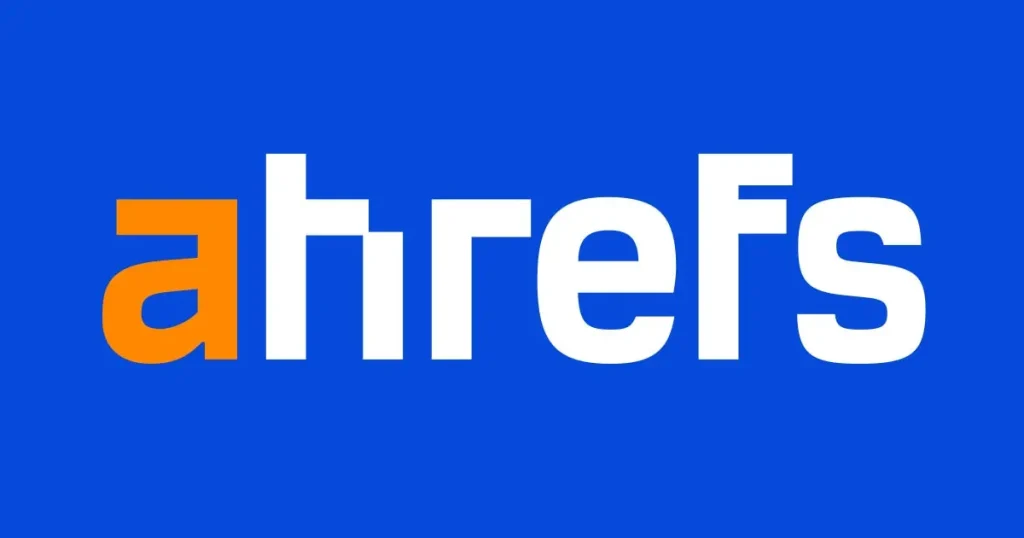
Ahrefs is a comprehensive SEO tool used to boost website traffic by exploring keyword ideas and ranking opportunities. The platform provides data for around 150 million keywords in the US and more for other 150 countries. It offers a complete suite for competitive analysis so brands can check what’s working for their competitors and their websites.
It is one of the most sought-after digital marketing analytics tools used mainly to create backlinks, find massive data, and optimize websites as per marketing requirements. You can check any URL’s organic keywords, estimate the traffic of competitors’ websites, find sources of backlinks, and check top-performing content.
Moreover, you can check content ranks and find key weaknesses of content. It is the top favorite tool for many marketing professionals who are impressed with its features and rely on them for their daily tasks.
Key Features
- Optimize websites
- Manage projects
- Competitor analysis
- Comprehensive SaaS tool
- Tracks ranking and progress
2. SEMrush
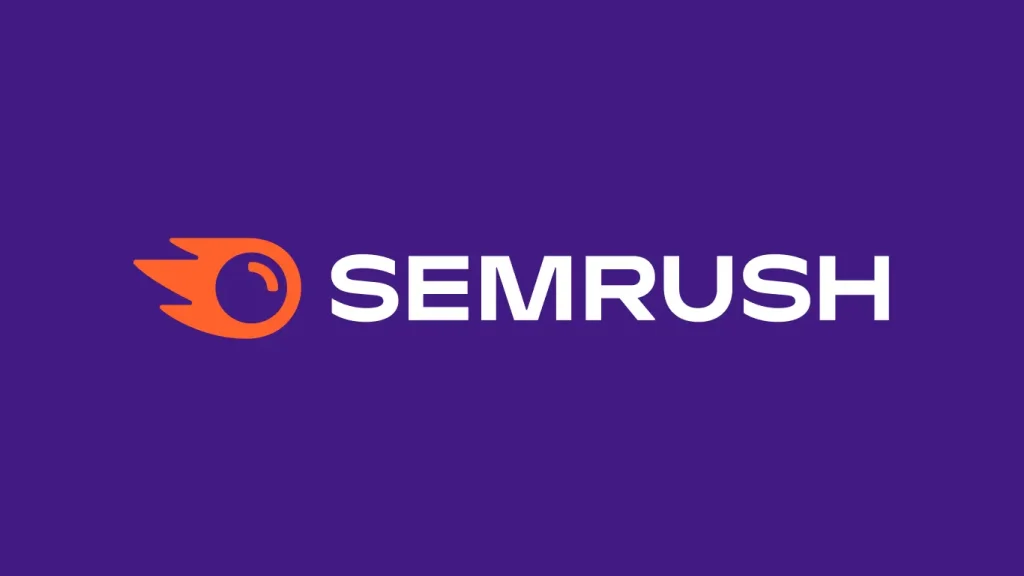
SEMrush is an all-in-one SEO marketing platform used by marketers and SEO strategists to boost the online visibility of brands. It helps in keyword research, content marketing, social media management, market research, search engine reputation management, SEO, etc.
Marketers use it to find long-tail and highly-targeted keywords to improve online traffic and lead conversions. It provides helpful keyword ideas to target new keywords. Its powerful and responsive user interface finds targeted and relevant keywords for content and SEO campaigns in no time. Its Social Media Toolkit comes with advanced social media analytics.
There are around 7 million marketers and professionals who trust SEMrush for their marketing strategies and campaigns. The platform has earned several awards thanks to its efficient results and performance. Marketing professionals just have to find keywords, use them, and track results.
Key Features
- Site audits
- Boosts organic traffic
- Supports social media strategies
- Brand monitoring
- Data visualizations for competitor analysis
- Higher reach with less spending
- Helps in composing optimized content
Also read: How to Learn Digital Marketing? 2025 Guide
3. Moz
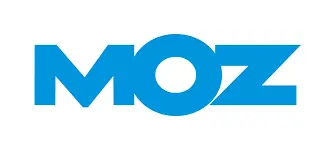
Moz is one of the most wonderful digital marketing software tools known for providing unforgettable user experience. It is a renowned SEO consulting company started in 2004 and now offers Moz Pro and Moz Local to help businesses boost their search engine ranking for more customers and views.
Moz Pro is a cumulative tool for site audits, tracking rankings, optimizing pages, assessing campaigns, and building links, whereas Moz Local primarily focuses on local SEO listings and improvements. This efficient tool is a great option to build a structured SEO strategy.
Key Features
- User-friendly analytics
- Industry-leading SEO metrics
- Audit tools to find errors
- Search engine ranking tools
- Free trial
Digital Marketing Tools for Email Marketing
Email marketing is a proven method to establish long-term relationships with customers. It is a scalable marketing platform used by most companies, be it big or small. Email marketing tools help marketers create the list, find relevant data, design templates, and send personalized messages to the target audience.
1. MailChimp

MailChimp is an email marketing and social media marketing tool that automates and orchestrates marketing campaigns. This is a popular and highly reliable platform used by email marketers to improve their campaigns, generate better results, and track traffic.
It allows multiple integrations with various SaaS companies. It is specifically an ideal tool for email drip campaigns, as marketers can engage users more. Moreover, MailChimp comes with pre-built email automation so you can reach the target audience easily at the right time. Also, you can provide a delightful experience to users with welcome automation, birthday messages, and order notifications. Retail and e-commerce businesses trust MailChimp to increase conversions, drive traffic, and grow sales.
Key Features
- AI-powered assistance for custom designs
- Tools for insights and data analytics
- Easy-to-use tools to develop better content
- A/B testing
- Personalized emails, which drive six times more orders through automation
- Automation workflows
- Real-time reports
- Allows to run multiple campaigns
- Social media plug-ins
2. HubSpot

HubSpot is a well-known CRM and inbound marketing tool that has recently stepped into email marketing. From social media marketing and content management to tracking emails and connecting with leads, HubSpot has got your back at every step of your marketing journey. When used for inbound marketing campaigns, it increases lead conversions, grows traffic, and improves ROI. Moreover, its sales tools shortens the deal cycle and increases close rates.
Integrating HubSpot email marketing with other HubSpot products, such as free-forever CRM and other marketing tools, is hassle-free. It includes a free plan that allows 2000 email-sends every month and comes with a drag-and-drop email builder, contact lists, and ready-made templates, enabling you to run your email campaigns without any delay.
It is equipped with ample basic and advanced features to accelerate business growth. You can set up popup forms, web forms, and live chat software for lead capture. Also, you can run campaigns, pipe data into CRM, and assess user behavior. One major reason to include it in our list of digital marketing tools is it reduces integration complexities with tools like Sprout Social.
Key Features
- Custom templates
- Automated emails
- Email tracking
- Automated follow-up emails.
- Works seamlessly with Gmail, Office 365, Outlook, and G Suite.
3. Lemlist

Lemlist is an email outreach automation tool used by businesses to scale their outbound sales and boost marketing efforts. As it mainly focuses on deliverability, it is a bit more unique than other tools. Users can select the best time to send emails to get more clicks and email views, making it one of the top free digital marketing tools to optimize existing campaigns.
Users can personalize their email campaigns by adding custom videos and images. Also, it uses customer data to add company, recipient’s name, and other details. There are other useful features too, such as lead scoring, email tracking, and automated follow-ups.
Thanks to its personalization features, outreach emails are now less spammy, and your follow-up emails will encourage more reverts. No wonder it’s a top choice for marketing, sales, and business development teams that want to increase personal interaction and response rates.
Key Features
- Easy email personalization
- Automated email sequences
- Automated follow-up
- Custom tracking domains
- Handy integrations
- CRM integration
- Liquid syntax
4. Moosend
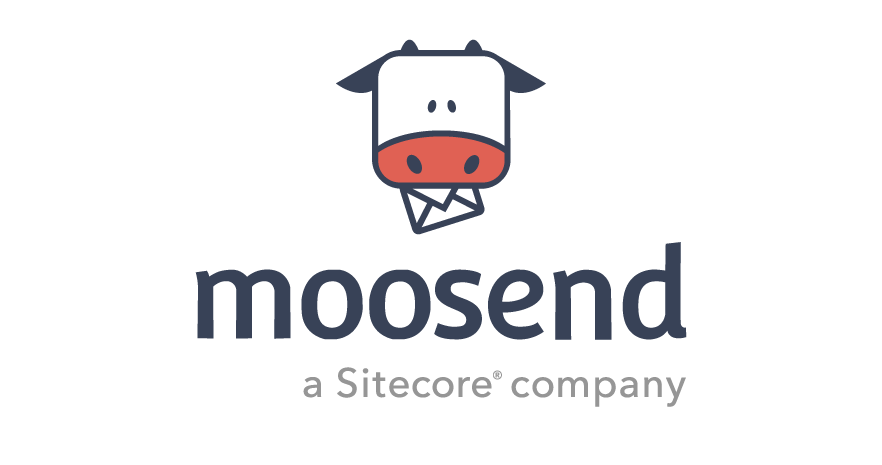
Moosend is a one-stop email marketing and automation solution that helps marketers develop and implement an effective digital marketing strategy. This user-friendly and affordable tool offers robust features for beginners so they can start their email marketing journey and create email lists effortlessly.
Whether your focus is lead generation or conversion, Moosend equips you with a form builder to design converting popups for website visitors. It supports simple automation, codeless campaigns, and straightforward reporting under one roof. Also, it comes with a drag-and-drop email builder so you can execute promotional email campaigns easily. You can segment the audience, personalize the message, optimize the user journey, and enhance customer experience using this single tool.
If you want to run paid campaigns, make the best the of lading page features, such as countdown timers and mobile popups. It enables real-time reporting and analytics so you can track the performance of campaigns and improve your marketing strategy as per your requirements.
Key Features
- Drag-and-drop newsletter editor
- A/B Testing
- AI subject line optimizer
- Countdown timers
- List segmentation
- Email marketing
- Automation
- Personalization
- Lead generation
- Tracking and analytics
Interview Questions for You to Prepare for Jobs
| Digital Marketing Interview Questions | SEO Interview Questions |
| Email Marketing Interview Questions | Content Writing Interview Questions |

Digital Marketing Tools for Social Media
Most of us have witnessed the evolution of social media. No wonder it has become a priority marketing platform for leading brands and businesses. These social media networks are used to nurture leads, interact with the audience, build relationships, and engage users. Social media marketing involves ample elements and managing all of them manually can be a hard row to hoe. Hence, social media marketing tools come into the picture to allow marketers to post more meaningful and engaging content and meet their marketing goals.
1. Audiense

Audiense, or SocialBro, is a popular social media analytics tool and audience intelligence platform. We all know the importance of social listening for determining current trends and target customers. Audiense focuses on social listening, providing insights and data on social media users which help in finding and segmenting the audience based on interests, demographics, and behavior.
You can use this marketing tool online to assess your target audience on social media and that of competitors. Also, by diving deeper into user personas, you can run more targeted ad campaigns. You can even dig into their personality traits, demographics, and more for better targeting, engagement, and segmentation.
Businesses, agencies, and marketers use this tool to create custom audience segments, understand the audience, send automated messages, engage with users, and improve social media marketing strategies. It is a great tool for B2B brands looking for prospecting and is preferred by B2C companies that want to get better insights into the target audience.
Key Features
- Community management & analysis
- Chatbots & broadcasts
- Advanced monitoring
- Audiences for monitoring
- Audience manager
- Campaign tools
- Measurement & reports
Also read: Essential Digital Marketing Skills Required for Career: 2025 Guide
2. Sprout Social
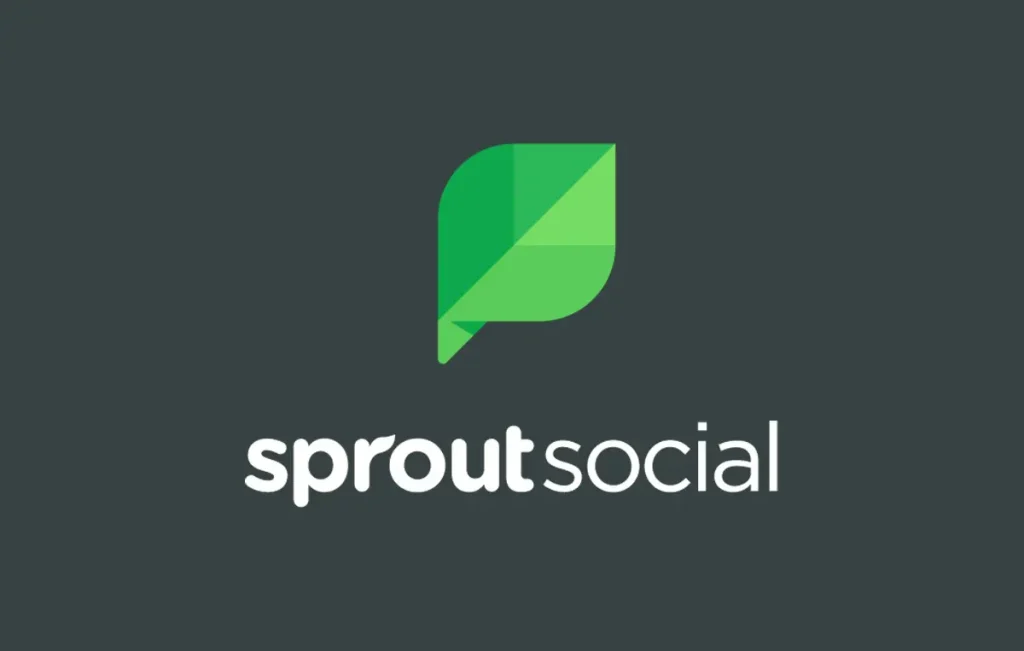
Sprout Social is a social media management tool that is also used for analytics and customer services. Businesses rely on this marketing platform to organize their content calendar and assets. Marketers can integrate it with popular social media networks, such as Twitter, Facebook, LinkedIn, etc., to publish and schedule their content timely so that it gains more user engagement and interaction.
One major reason to include Sprout Social in our digital marketing tools list is that it provides detailed statistics for all linked social networking platforms. It allows colleagues and consumers to collaborate seamlessly and is a comprehensive tool for social analytics.
You can use it for a bird’s-eye view of social messages and reply to all users efficiently. Also, it will identify your top-performing posts and content so you can measure the performance of social media campaigns and plan future posts accordingly. Using its amazing features, you can explore the latest trends, opportunities, and hashtags to engage more users.
Key Features
- Link performance analysis
- Integrated analytics
- Social media dashboard
- CRM tool
- Provides demographics and contact details of Twitter users
- Allows competitor analysis
- Segments customers according to location or interests
- Free trial
3. Loomly

Loomly is a social media management tool, self-described as a ‘brand success platform.’ It is among the best internet marketing tools used by smaller social media teams to organize content. It helps users plan, develop, and publish content across different social media platforms. It comes with built-in calendars, a content library, and post-preview features that make posting easier and faster.
You can store and organize content and check how a post will appear on the platform before posting. There are collaboration and analytics tools that make performance tracking more convenient and ensure enhanced user engagement. There is an added feature on Loomly to curate fresh and unique content ideas based on trending topics and conversations.
It has a clean, uncomplicated, and simple user interface that is easy to navigate and friendly to use, even for people who are not tech-savvy. Its affordable price makes it ideal for small businesses and agencies who want to establish a strong online presence without straining their budget.
Key Features
- Content Library
- No limit to inspiration
- Optimization tips
- Post mockups
- Automated publishing
- Better audience engagement and response
- Advanced analytics
- Approval workflow
- Team collaboration
- Post scheduling
4. Hootsuite
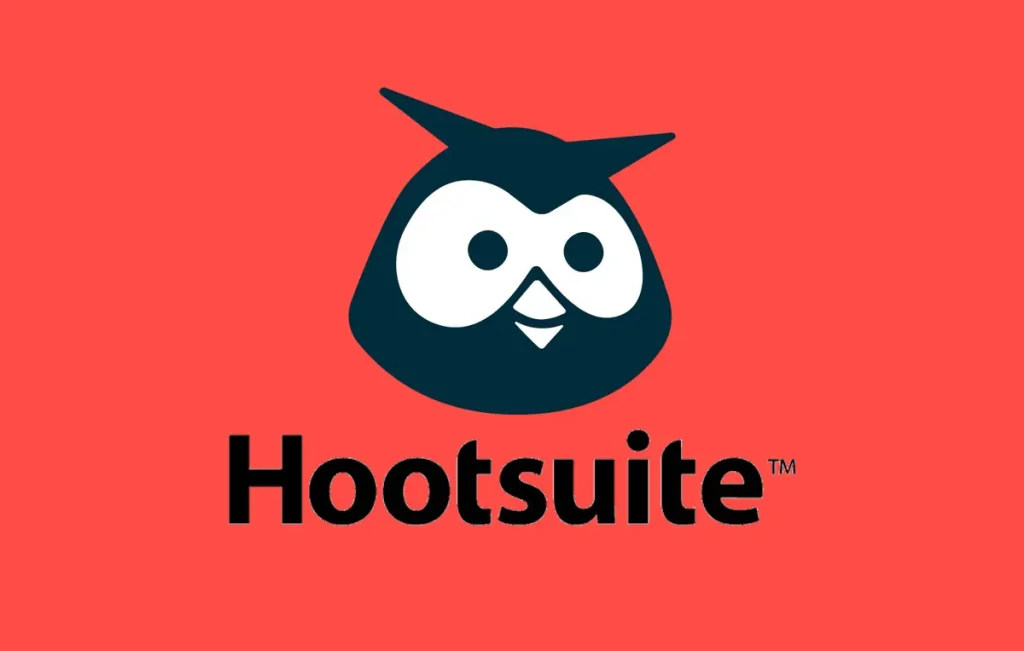
Hootsuite is an enterprise social media management tool. Although it’s a powerful tool, it keeps things elegant and simple. Its key highlight is the provision of monitoring different social media channels. From Facebook to Twitter, it covers all the platforms.
Anyone who is looking for the best digital marketing tools can’t miss Hootsuite. It stores approved content in a cloud so team members can access it anytime based on their posting needs. Also, you can schedule multiple posts simultaneously with tags and keywords. It allows you to track the performance of social media campaigns, calculate ROI, and check conversions. If you want higher audience reach without putting in hours of effort, then Hootsuite is for you. You simply have to curate unique content that your audience loves, and you can reach millions of users at once.
Key Features
- Post scheduling
- Easy-to-view analytics data
- Allows to monitor multiple social media streams
- Social media listening
- Team collaboration
- Hootlet plug-in to share information
Digital Marketing Tools for Analytics
No marketer can function without data analytics tools. These platforms enable them to track and measure the effectiveness of their campaigns and determine what’s delivering bang for their buck. With data analytics tools, it’s better to choose one rather than using different tools. It ensures more focused goals, be it increasing sales, optimizing operations, or enhancing user experience.
1. Google Analytics

Google Analytics is a powerful digital marketing tool that proves you don’t need to splurge to stay ahead of the competition. It is considered a standard for web analytics and helps in several marketing decisions. Although the tool is free to use, it provides comprehensive data for a better understanding of website traffic. If you don’t have basic knowledge of Google Analytics, it would be difficult to survive as a digital marketer.
Google Analytics gives detailed insights into social media and website traffic, along with conversions. You also get to know how website visitors interact with products and can monitor different campaigns using a single tool. Moreover, you can set up marketing goals, track results, get customer data based on demographics, track events to learn about user engagement, optimize the website, and ensure better user experience.
Using Google Analytics, marketers can know the modifications that the website needs and take appropriate measures. There might be hardly any marketer who hasn’t used this tool for tracking and analysis.
Key Features
- Detailed information regarding website traffic, segmented based on pages, products, devices, and other factors.
- Allows custom reports.
- Shared insights into business performance.
- Cross-device data.
- It enables marketers to create metrics, dashboards, and dimensions for quick access to data.
- Works seamlessly with other media and publisher products of Google.
- Supports data visualization to suit business requirements.
- Helps you understand the target audience better through real-time updates and information about customers.
- You can check the pages visitors explore often, evaluate engagement rates, and optimize landing pages for a better experience.
- Easy to share data through reporting tools.
2. Kissmetrics

Kissmetrics is one of the top web-based digital marketing analytics tools used to analyze, find, understand, and improve the metrics to drive website traffic. It comes with several sub-tools for analytics, which helps turn potential clients into paying customers.
You can use this tool for detailed analysis of the sales funnel and visualize how visitors navigate, getting a fair understanding of the model and making necessary improvements wherever required.
Key Features
- Design editor
- Real-time tracking
- Software integration
- A/B testing
- Revenue reports
- Funnel and cohort reports
- Behavior campaigns
- Behavioral campaigns
Also read: Difference Between On-Page vs Off-page SEO: 2025 Comparison
Digital Marketing Tools for Graphic Design
Videos and images are the cornerstone of digital marketing, whether it’s social media, blog posts, websites, or infographics. The digital world is dominated by visual elements, and no business can ignore their importance. However, hiring a professional graphic designer can be expensive.
Hence, graphic design tools come to the rescue. Users can easily create aesthetically pleasing and appealing visuals in no time. You can create unique designs at the minimum costs and effort.
1. Canva

Who doesn’t like an intuitive and template-rich tool? And if it’s free, there’s nothing more you need, right? Canva is one of the top tools for digital marketing used to design graphics for social media and other platforms. It is a drag-and-drop tool that allows users to create innovative and exceptional images using different shapes, themes, icons, pictures, and fonts available in the Canva catalog.
Its vast library of pre-made templates and images makes it hassle-free for designers and digital marketers to create stunning videos in no time. Thanks to its simplicity, you don’t need technical know-how to design your social media posts, presentations, logos, and other graphics.
Marketers can run effective and out-of-the-box marketing campaigns with eye-catching visual content for websites, blogs, social networks, and other digital channels. There are several useful features, such as email editors, photo filters, and team collaboration. It is a perfect platform recommended by many designers to turn your ideas into beautiful and compelling graphics.
Key Features
- Edit images, posts, and other visual content to create required graphics.
- Includes various templates. Its library comprises icons, photos, vectors, designs, and a lot more, so you can create any content for your campaigns.
- Select from a huge collection of designs, including brochures, book covers, postcards, magazines, letterheads, wallpapers, CD covers, banners, flyers, presentations, logos, resumes, certificates, and whatnot.
2. Visme
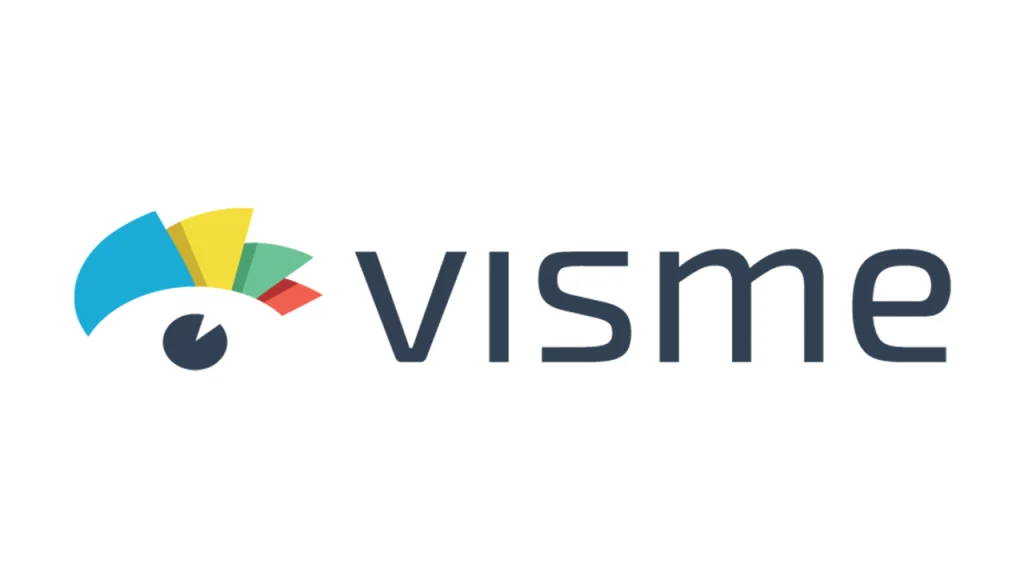
Visme is a cloud-based platform used mainly for creating data visualization and presentation. Users can compose amazing designs for social media, infographics, blog posts, etc., as data and infographics are the most commonly shared content types of social media. Visme is the best tool for users who often post research data, statistics, and infographics on their social media accounts.
Unlike Canva, which is preferred for simple designs, Visme is ideal for complex designs and offers a plethora of professionally styled templates. Use its drag-end-drop editor to customize and edit images.
Also, there is a huge library of stock images, illustrations, and icons. There are features for interactive elements, visualization tools, and animation, making it easier for users to design graphics for various platforms. Visme is exclusively known for its business-forward templates that are useful for producing assets for internal teams. It allows you to create impactful videos to achieve your business goals.
Marketers and brands rely on Visme to produce engaging visual content that can effectively communicate their ideas.
Key Features
- Professional and engaging marketing content
- DIY design tools
- Stunning design assets for customized designs
- Easy collaboration
- Activity tracking
- Collaboration tools
- Online sharing and download
More Tools in Digital Marketing
There are some more digital marketing tools used for different purposes and strategies.
1. Trello
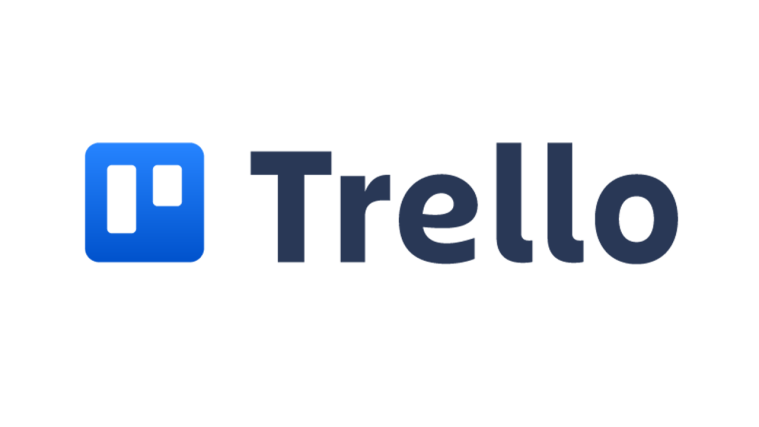
Trello is one of the top 10 digital marketing tools available and is used by numerous companies and organizations to strategize content and brainstorm new ideas. Marketers prefer Trello to create, schedule, and organize their digital content for marketing campaigns.
One reason that many recommend Trelo is that it is free for small teams and businesses. Moreover, it offers a visual way to schedule content online even if teams work remotely.
This single platform can keep the whole team together by making communication easier and seamless, especially if they are working from different parts of the world. Managers can assign multiple employees to a card to track who is taking care of which aspects, such as editing, writing, designing, adding CTA, etc. Users can design cards, include notes, assign topics, and create deadlines for teams, which improves collaboration and provides more clarity.
Key Features
- Email notifications and activity log
- Create cards and add notes on the card topic
- Assign topics and deadlines for teams
- Suitable for companies of all sizes
- Facilitates remote working by allowing team members to access tasks and projects from anywhere
- Integrates apps into the workflow
- Easy to attach photos and images
2. Slack

Slack is a leading communication platform used by many organizations and businesses these days. Although many consider it a mere messaging app, it offers a lot more. It works in channels designated for certain information, which ensures smooth conversations between team members and avoids any disruptions. Also, others would know when a person goes for lunch or a break or has focus time.
Digital marketers rely on Slack for better team collaboration and networking. They can discuss the project, articles, support tickets, and content with teams. Also, anyone can join or leave the channel without hassle.
In addition, it has a range of integrations with other tools and apps, which makes it more powerful. For example, teams can pipe in analytics notifications, sales/customer support bots, A/B test results, transaction notifications, and more. What’s more? It’s easy to use and ensures effective communication throughout.
Key Features
- Assists in team collaboration
- Allows public, private, and searchable conversations.
- Easy to communicate with team members in real-time
- You can change the colors of the interface
- Supports video conferencing
- Allows teams to follow every detail related to a project, campaign, or event.
3. Typeform
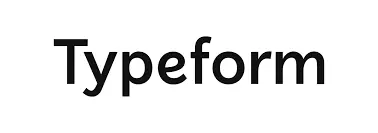
Typeform is a web-based form-building tool for marketers who want to design minimalist, engaging, and interactive forms for surveys and quizzes. Its easy-to-use drag-and-drop interface is complemented by an array of customizable templates and design options.
Forms designed using Typeform are stylish and sophisticated and don’t look like typical ads. It offers features such as data validation, conditional logic, and real-time analytics. Its simple editor and embeds are added bonus.
Furthermore, you can use it for lead generation, getting feedback, conducting research, etc. The best part is it can be integrated with Salesforce, Google Sheets, MailChimp, and other marketing tools.
Key Features
- Customization
- Conditional logic
- Survey management
- Multi-page forms design
- Built-in templates
- Survey distribution
- Customization
- Multimedia support
- Multilingual surveys
- Reporting & Analytics
- BI Tools Integration
Also read: Difference Between Digital Marketing vs Traditional Marketing: 2025 Comparison
4. Unbounce

Unbounce is one of the top digital marketing tools that makes building, optimizing, tweaking, and launching landing pages a breeze. It is also used for publishing pop-ups and sticky bars without any IT or web development resources. Its A/B testing and analytics features help users determine the elements of a page, such as CTAs, creatives, and visuals, that are working the most and those that aren’t working at all.
It comes with a visual editor and pre-designed templates to create custom landing pages and pop-ups. You can change the look of each page based on your marketing strategy and use advanced analytics to find the elements that attract visitors the most.
There are conversion analytics, text replacements, and integration options as well. It is mainly used by advertisers, marketers, and businesses to generate more leads, drive conversions, and increase sales.
Key Features
- Easy integrations
- Ideal for designing landing pages and overlay templates
- A/B testing
- Multi-user and client management
- Real-time statistics
- Lead generation tool

5. Clearscope

What if you want to capitalize on keyword opportunities by optimizing your content? Well, we have Clearscope, a content optimization tool, for that purpose. It uses machine learning and natural language processing (NLP) to analyze and optimize content. The tool is primarily used for writing content with a detailed editor that helps with headers, keywords, and readability so users can create high-ranking content for blogs.
Clearscope also identifies and optimizes relevant keywords, topics, and phrases, and fixes issues with style, grammar, and readability. It is used by marketers, content writers, SEO professionals, and copywriters to improve the performance of their digital content and drive organic traffic. It is easy to integrate with different content management systems (CMS), including Hubspot, WordPress, and more.
Key Features
- Competitor analysis
- Categorization/Grouping
- Reports
- Content optimization
- Campaign management
- Competitive analysis
- Conversion rate optimization
- Filtering
- Keyword research
Conclusion
With this, we have come to the end of our list of top digital marketing tools. Choosing the right tool means more streamlined workflow, automated process, and effective marketing campaign. You can opt for one tool or combine two or more tools as per your requirements and budget.
Onc you decide on the marketing tools, launch your marketing campaign with confidence and track your marketing efforts for desired results.
Read more blogs:



